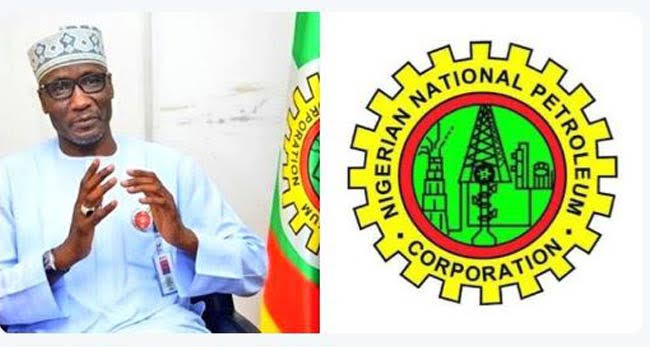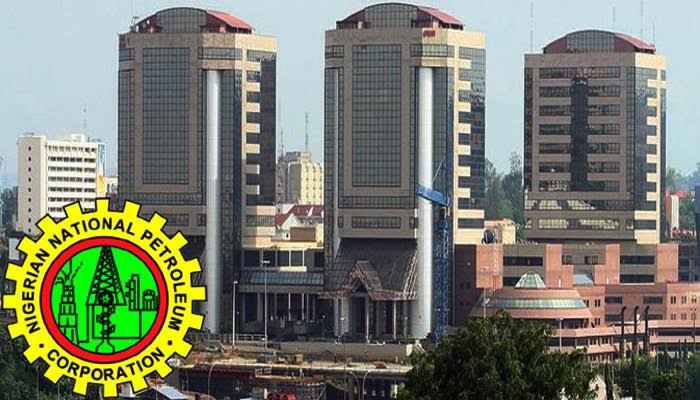Oil and Gas
Nigeria Refineries has not produced petrol in one year – NNPC

Refineries has not produced petrol in one year – NNPC
No drop of petrol or kerosene was produced by any of the refineries under the management of the Nigerian National Petroleum Corporation for eight straight months.

Latest figures released by the NNPC on refined white products (petrol and kerosene) from local refineries showed that from June 2019 till January 2020, the facilities refined none of the identified finished products.
It was further observed that the last time the refineries produced Premium Motor Spirit, otherwise called petrol, was in May last year.
The same scenario also applied in the production of Dual Purpose Kerosene, often referred to as kerosene, as the last time it was refined by the facilities was in May 2019.
Refineries under the management of the NNPC are the Kaduna Refining and Petrochemical Company, Port Harcourt Refining Company and Warri Refining and Petrochemical Company.
An analysis of the figures should that in January, February and March 2019, the refineries produced 45.5 million litres, 44.1 million litres and 44.1 million litres of petrol respectively.
Also, in the same first three months of last year, they jointly produced 36 million litres, 36.1 million litres and 38.2 million litres of the DPK respectively.
But in April last year, their production of the PMS and the DPK crashed to zero, meaning that they refined no white product in that month.
In May 2019, they produced 9.1 million litres of petrol and 4.9 million litres of kerosene.
But from June last year till January 2020, no drop of petrol or kerosene was produced by the refineries, as they recorded zero all through the eight-month period.
Explaining what prompted the dormancy in terms of petroleum products refining, the NNPC said, “No white product was produced in January 2020 and apparently for the past seven consecutive months.
“The lack of production is due to ongoing rehabilitation works at the refineries.”
But stakeholders in the oil sector faulted the never-ending rehabilitation of Nigeria’s refineries and had called on the government to privatise the facilities.
Recently, a consortium of about 15 civil society organisations asked the Federal Government to privatise the refineries.
According to the groups, this will help the government as it currently struggles to manage the Nigerian economy following the impact of the COVID-19 pandemic on crude oil price globally.
CISLAC, BudgIT and 13 other organisations disclosed this in a recommendation released after their meeting on developments in Nigeria’s oil sector.
They said, “As a matter of urgent national importance, we strongly support the call for the privatisation of the country’s refineries in their present condition to avoid further revenue losses.
“We encourage the government to adopt favourable fiscal terms that bring about a renewed investors’ confidence and help fast-track the 29+ refineries, which still have valid operating licenses.”
terms of the equipment and facilities but also the health workforce, which is important in driving any health system.”
The CMA president stated that there was no reason health, consistently, would be behind several other sectors, adding that, going forward, health should be number one.
He queried the remuneration packages for health workers, saying the reward system was unacceptable.
“Currently, what is the incentive even now that we are battling COVID-19 in terms of hazard allowance? They have a miserable hazard allowance of N5, 000 monthly paid to health workers in Nigeria and that has been since 2009.
“It is something that needs to be quickly rejigged in terms of all the elements that will make for a functioning, effective and sustainable health system. I expect that our leaders at various levels will now begin to put allocations to the health sector as top priority.
“There is no reason, year in, year out, the health budget in our nation, for instance, and all levels of governance cannot meet up with the 15 per cent agreed on in 2001 at the Africa Heads of Government meeting that was hosted by Nigeria,” he added.
Enabulele noted that in the United Kingdom and other countries, unlike Nigeria, where there was little or no external conflict, health was given a top priority.
“In the UK, for instance, the health budget is, more often than not, higher than even the budget for Defence because of the way they value their health. The statistics are all there. The National Health Service, for instance, has one of the most profound budgets anywhere in the world,” he said.
The Executive Director of the Centre for Open Leadership and Anti-corruption, Debo Adeniran, also said a lot of wasteful spending by the Federal Government had deprived the health sector of basic amenities.
Adeniran urged the government to redirect its attention on health care facilities, provide incentives for frontline health workers and ensure provision of essential equipment and facilities, especially in tertiary health institutions like the University College Hospital, Ibadan and Lagos University Teaching Hospital, among others.
He said, “If you get to the National Assembly, the old complex is still useable, but they abandoned it. They built another one and it’s still the one they want to renovate with a huge amount of money.
“That is the area of wastage that we should look at. The National Assembly do not empathise with ordinary Nigerian people by spending so much money in acquiring unearned comfort for themselves by ordering 2020 Toyota Camry.
“That is ostentation that we shouldn’t afford. We should talk about the amounts of money being wasted on government officials who travel abroad for nothing, just because they want to get estacode, they waste the scarce foreign reserves and foreign exchange.”
Proffering solutions
A former member of the House of Representatives in the Second Republic, Dr. Junaid Mohammed, also decried the state of the health sector.
Mohammed, who is also a medical doctor, stated that government expenditure profile indicated a lack of priorities.
He said, “But this is not unusual because virtually everything we have been doing in this country, for as long time as I’ve been politically conscious, has never been on any serious priority. If an individual, family, clan or the society lacks any serious priority, you can see that the lack of priority is reflected in the way they go about spending or disbursing their resources.
“And at the end of the day, when challenges are being faced, you find that that lack of priority shows itself and the non-performance of what has been done is the case. In the health sector, in particular, and to a certain extent education, there is already a road map to follow.
“The World Health Organisation has, over the years, given indication as to what percentage of national budget must be spent, not only in the particular area of health delivery system, but it also indicates what sub-sectors of the health delivery system must be spent.”
The former lawmaker said, as far as the WHO is concerned, the emphasis should be on primary health care, preventing diseases threatening lives of children, including diarrhoea, malaria, and typhoid, among others.
He added, “We ought to take a reasonable chunk of our own budget so that, at least, our children will grow up better. If they grow up in better health, they will be in a position to resist some of the illnesses, which are the common scourge of our existence.
“Cuba has one of the best medical services in the world. They have a life expectancy rate, which, in fact, is at par with advanced countries like Canada, the United States, Scandinavian countries like Sweden, Norway and Denmark, as well as New Zealand.
“It shows that it is not the amount of money that you spend, per se, but how carefully you spend and how sincere the elite who are managing the health system have been in disbursing these resources. If we don’t do that, then you don’t complain about anything.”
On his part, a former governor of Kaduna State, Balarabe Musa, told our correspondent that he was not optimistic that the current regime could do any better in the health sector after the end of the pandemic.
According to him, one cannot expect anything hopeful from the regime because of the alleged level of incompetence and inability to control the situation.
Musa said, “Things have been allowed to reach this level that we have lost control. We only wait for the worst. The level of incompetence in every respect is clear that you can’t really hope for anything.
“I know, as religious people, we hope God will correct the situation but we have to stand up before God can help us. Are we, Nigerians, standing? We are not. We can’t rely on God because we are not faithful to God.”
The Chairman, Presidential Advisory Committee against Corruption, Prof. Itse Sagay (SAN), noted that there was a fundamental problem with the health care system. He, however, argued that the problem predated the current regime.
Sagay said, “It is not something limited to the present government. It’s a long-standing problem which has been going on throughout the military era, through the beginning of democracy in 2000 and so on. It’s not a new thing.
“The attempt to try and hang it on the current government is just a vicious political gambit which obviously would fail on any rational observation. It’s nothing new about our poor health architecture.
“Everybody agrees, I agree too that something needs to be done. But it is not something that can be done because of this coronavirus. I think that’s ridiculous. We can’t establish a viable health system within three to six months. That is another misconception.”
According to him, the discourse should be geared towards a long-term plan to progressively establish what people are asking for, so nobody will need to leave the country to seek medical attention.
The constitutional lawyer said, though the current regime needed to take action, the blame should be passed on all generations of politicians, starting from the Second Republic.
He said, “I think this government in power should start a plan, but the whole country should put hands together and not start a blame game, which is meaningless in the circumstance. So, we have a poor health system in this country — totally inadequate.”
Speaking on banning foreign medical trips, Sagay argued that some factors should be considered.
He stated, “One, supposing somebody has his own money, you cannot stop him because that would be in breach of his human rights. You can say you won’t sponsor him with government money because government has a right to how it wants to use its money for the betterment of the nation.
“But if a person has his own money, you can’t ban him from going abroad. That is totally against his human right and the human right, number one, is right to life.
“Two, what we should also ask ourselves is, do we now first build a viable health system before banning those who are being sponsored abroad or do we put the ban in now to say, ‘damn it, if anything happens to such public official while the ban is on, well, too bad’?”
He said, most importantly, one should consider a situation as in the past, where a head of state, vice president or governor was seriously ill and the country allegedly did not have the facilities.
“Do we say he should die here because we have a principle that no medical tourism for health purposes? Do we allow such to happen to a major person whose death will shake the nation?
“It is a complex thing and I think our people, particularly public observers, tend to talk without thinking of the consequence of what they are doing.
“In conclusion, I think we must put hands together and vigorously transform our health system. But until we do that, I don’t think I would like to put any embargo on any of going abroad,” he said.













